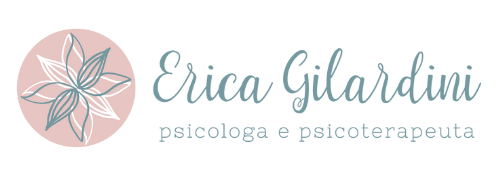Epilepsy and Alcohol: Triggers and Safe Drinking
We publish material that is researched, cited, edited and reviewed by licensed medical professionals. The information we provide is not intended to be a substitute for professional medical advice, diagnosis or treatment. It should not be used in place of the advice of your physician or other qualified healthcare providers. Another thing to keep in mind is that alcohol and anti-seizure medications can cause similar side effects, such as fatigue, drowsiness, dizziness, and blurred vision.
Get Help for Alcohol Withdrawal Seizures
Additionally, if a seizure cannot be stopped or multiple seizures occur in rapid succession, it could result in permanent injury or prove fatal. Before a seizure, people may experience an aura or feel a change in sensation — such as smell, taste, sound, or vision — due to abnormal activity in the brain. When people stop consuming alcohol after chronic use, they lose the inhibitory effects of the GABA receptors, resulting in the central nervous system being overstimulated. This may be due to alcohol’s effect on the brain, sleep, and anti-seizure medications. BetterHelp offers affordable mental health care via phone, video, or live-chat.
Alcohol may negatively affect sleep, and sleep disruptions may trigger seizures. For people with epilepsy, alcohol may interact with epilepsy medications and worsen their side effects or make the medications less effective in preventing seizures. Heavy drinking, particularly withdrawal from heavy drinking, may trigger seizures in those with epilepsy.
How Alcohol Affects the Brain
- Seeking treatment at a professional alcohol rehabilitation facility can help you significantly reduce or stop your drinking.
- Alcohol does not typically cause seizures when consumed in moderation.
- Epilepsy is defined as a spectrum of disorders that involve the central nervous system (brain and spine).
American Addiction Centers (AAC), the parent drinking out of boredom company for Alcohol.org, is a nationwide provider of treatment providers and works to ensure recovery is accessible to everyone in need. We offer a combination of proven therapies and services to meet your individual needs. We are also equipped to treat co-occurring disorders such as depression, anxiety disorders, PTSD and others.
Alcohol does not typically cause seizures when consumed in moderation. However, heavy alcohol use or binge drinking can sometimes trigger seizures, especially in people with an underlying seizure disorder (epilepsy). Additionally, there are studies linking excessive alcohol consumption with an increased risk of developing epilepsy. Alcohol-induced seizures are triggered by alcohol withdrawal in people with a long history of drinking. Alcohol withdrawal seizures can occur a few hours to a few days after a person stops drinking after chronic alcohol abuse. group ideas for substance abuse When people talk about alcohol seizures, they usually mean alcohol withdrawal seizures.
Furthermore, seizures seemed particularly likely if the participants did not regularly drink that much alcohol. Others have seizures when they try to quit drinking after long periods. These can be life-threatening episodes, so it’s critical to know what they look like and how they’re treated. Another one of the big reasons people with epilepsy are warned not to consume alcohol is that many of the anti-seizure and anti-epileptic drugs that treat epilepsy do not mix well with alcohol. Most of these medications lower your alcohol tolerance, causing you to become intoxicated or feel the effects of alcohol more quickly or severely.
According to the Epilepsy Foundation, some studies have linked chronic alcohol misuse to the development of epilepsy. However, there have been reports that the risk of seizure increases in an alcohol-dependent person who misuses a sedative and takes nonsedative AEDs. When alcohol withdrawal syndrome sets in, seizures may arise within approximately 6 to 48 hours. Your provider may recommend specific services based on your seizure history. For example, if you have experienced seizures, you may need to participate in inpatient detox supervised by medical professionals rather than detoxing in an outpatient setting.
Professional help is also available for those struggling with alcohol addiction. Alcohol poisoning can lead to seizures, but these may not result from the alcohol intake itself. Lower liberty cap characteristics blood sugar or head trauma caused by a sudden fall could be the underlying cause. Clearly, people diagnosed with epilepsy have different answers to the question, “Does alcohol affect epilepsy? ” This can be confusing — especially if you or someone you love has been newly diagnosed with epilepsy and is deciding whether or not to drink.
The Link Between Alcohol and Epilepsy
However, someone who is having an alcohol withdrawal seizure may not need any trigger other than stopping alcohol use. Alcohol withdrawal seizures can occur within a few hours or up to 72 hours after stopping drinking. We have an experienced team of healthcare providers who can manage alcohol-related seizures during the withdrawal phase and keep you safe and comfortable.
Epilepsy
During the detoxification process, primary and secondary preventative measures can be taken. A meta-analysis of randomised, placebo-controlled trials for the secondary prevention of seizures after alcohol withdrawal showed lorazepam to be effective, whereas phenytoin was ineffective. Because withdrawal seizures do not recur if the patient remains abstinent, long-term administration of antiepileptic drugs is unnecessary in abstinent patients. The treatment of alcohol dependence is more important and should be prioritised before the prevention of further seizures. Alcohol withdrawal can trigger seizures and people with epilepsy are at a higher risk of experiencing alcohol seizures.

